Relief for Community Banks in the Competition for Deposits
An important reform of the rules governing reciprocal deposits will make it easier for community banks to compete for the business of large depositors.
By: Steve Davis, Regional Director at Promontory Interfinancial Network, LLC
The recent bank reform bill made a lot of news, but what may surprise you is the specific provision of the Economic Growth, Regulatory Relief, and Consumer Protection Act that community bankers believe will have the biggest impact on their daily business.
Before the bill became law, a lot of attention was placed on the provision raising the systemically important financial institutions, or SIFI, threshold from $50 billion to $250 billion in assets, above which banks must contend with a heavier compliance burden.
Yet, the provision involving SIFIs directly impacts only a small number of commercial banks based in the United States—the dozen-plus with between $50 billion and $250 billion in assets.
Perhaps that’s why when Promontory Interfinancial Network queried bankers for its second-quarter Executive Business Outlook Survey, executives from the 390 banks that responded pointed elsewhere when asked to identify the law’s most impactful provision.
Thirty-seven percent of respondents said the law’s provision that allows most reciprocal deposits to be treated as nonbrokered deposits ranked highest on a scale of one to five, placing it first among the seven other provisions tested.
It was up against stiff competition. The other provisions included those that eased the qualified mortgage rule, extended the regulatory exam cycle and simplified capital rules for community banks, among others.
“We think the change to reciprocal deposits is great,” says Christopher Cole, executive vice president and senior regulatory counsel for the Independent Community Bankers of America. “It clarifies the status of reciprocal deposits and alleviates the concerns many community banks had about using them.”
Similarly, the American Bankers Association noted that, “the definition of brokered deposits needs to be modernized and we appreciate that Congress took a first step by recognizing reciprocal deposits are a stable source of funding for many community banks.”
The change in the law makes sense, says Neil Stanley, president of community banking at TS Banking Group, which owns three banks, including Treynor State Bank, a $400 million bank based in Treynor, Iowa: “This is one of those areas that reflects what bankers always thought was true—when a large, local depositor does business with us, any deposits above the $250,000 FDIC insurance threshold shouldn’t be considered brokered or highly volatile just because we place them with other institutions on a reciprocal basis.”
Underscoring the significance of the change, 58 percent of respondents to Promontory Interfinancial Network’s survey said they plan to start using, or expanding their use of, reciprocal deposits immediately or very soon because of the new law. An additional 29 percent said they would consider doing so in the future.
To put this in perspective, according to the same bank leaders, the next most impactful provision included in the new law relates to the easing of rules surrounding commercial real estate loans, followed by the provision that shortened call reports and then by the provision that provided qualified mortgage relief.
The change in reciprocal deposits may seem like a peripheral issue, but it addresses a fundamental inequity in banking. It does so by helping to level the playing field between the handful of large, money center banks headquartered in places like New York City and the thousands of smaller banks spread across the country that serve as economic lifelines in their communities.
Institutional investors have often favored big banks because of the belief they are “too big to fail.” And since they have more resources to invest in mobile and online banking technology, big banks have become magnets for deposits from the new generation of digitally savvy consumers. These banks no longer need to rely as heavily on building branches in rural communities to compete with community banks for funding; they can now reach small-town customers through their smartphones.
As such, many of the nation’s biggest banks are reporting organic increases in deposits. And the competition on the funding side of the balance sheet will only intensify as interest rates climb. The Federal Reserve’s Open Market Committee has raised the fed funds rate multiple times this year and is expected to continue doing so.
By making it easier for community banks to use reciprocal deposits, in turn, the new law strengthens their ability to grow relationships and deposits from a local customer base without losing either one to bigger banks with deeper pockets.
“This is a step in the right direction,” says Bert Ely, a principal of Ely & Company, where he monitors conditions in the banking industry. “It makes it easier for community banks to accommodate large depositors.”
Given all this interest, it seems likely that the use of reciprocal deposits will increase in the coming months and years. Banks not currently familiar with them would thereby be wise to familiarize themselves with how reciprocal deposits work and their benefits.
To learn more about reciprocal deposits and the impact of the new law, contact Steve Davis at sdavis@promnetwork.com.
